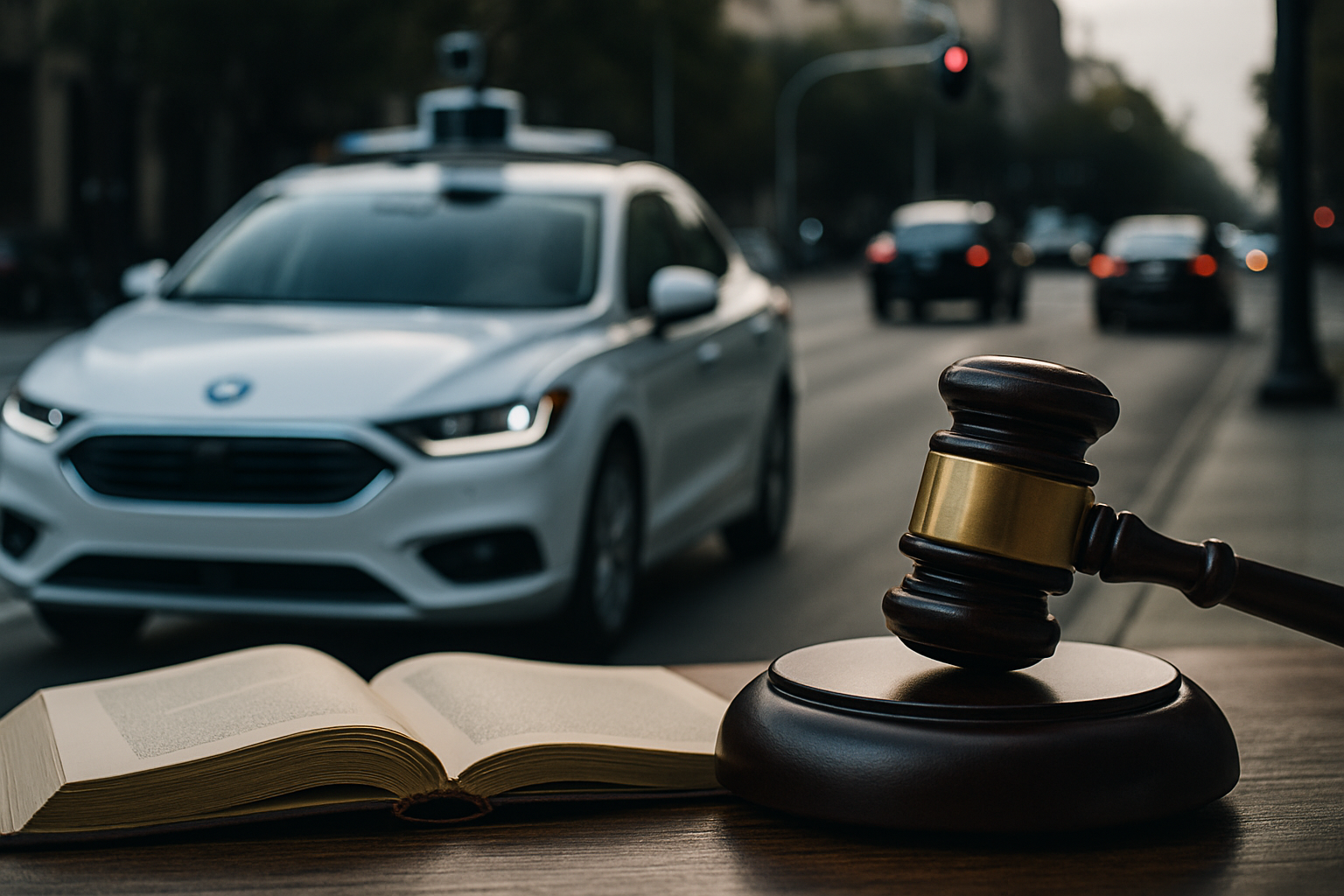Legal Challenges in Regulating Autonomous Vehicles
Introduction: As autonomous vehicles inch closer to widespread adoption, legal frameworks struggle to keep pace. This article delves into the complex legal landscape surrounding self-driving cars, exploring the challenges lawmakers face in balancing innovation with public safety and accountability.

Liability and Insurance: Uncharted Legal Territory
One of the most pressing legal challenges surrounding AVs is determining liability in the event of an accident. Traditional auto insurance models rely on human error as the primary cause of accidents. However, with AVs, the line between human and machine responsibility blurs. Questions arise: Is the vehicle manufacturer liable? The software developer? The human occupant? Or some combination thereof? Legal experts are grappling with these questions, proposing various models such as no-fault insurance systems or manufacturer-held fleet insurance. The resolution of these liability issues will significantly impact the AV industry’s growth and public acceptance.
Data Privacy and Cybersecurity Concerns
AVs generate and process vast amounts of data, raising significant privacy and security concerns. Current laws struggle to address the unique challenges posed by AVs in terms of data collection, storage, and usage. Questions about who owns the data generated by AVs, how it can be used, and how to protect it from cyber threats remain largely unanswered. Lawmakers must balance the need for data to improve AV technology and safety with individuals’ right to privacy. Additionally, the potential for AVs to be hacked or remotely controlled presents novel security risks that require innovative legal solutions.
Ethical Dilemmas and Algorithmic Decision-Making
The programming of AVs raises complex ethical questions that have legal implications. How should an AV be programmed to respond in unavoidable accident scenarios? Should it prioritize the safety of its occupants or minimize overall harm? These ethical dilemmas, often referred to as the trolley problem in the context of AVs, present significant challenges for lawmakers. Legislation may need to address the ethical frameworks underpinning AV decision-making algorithms, potentially requiring transparency in these algorithms and establishing standards for ethical decision-making in AVs.
Interoperability and Standardization
As AV technology advances, the need for interoperability and standardization becomes increasingly apparent. Different manufacturers use varying technologies and systems, which can lead to compatibility issues and safety concerns. Lawmakers face the challenge of establishing standards for AV communication, traffic management systems, and infrastructure without stifling innovation. International cooperation will be crucial in developing global standards to ensure AVs can operate seamlessly across borders.
The Road Ahead: Adaptive Legislation and Regulatory Sandboxes
Given the rapid pace of technological advancement in the AV sector, traditional legislative approaches may prove too slow and inflexible. Some jurisdictions are exploring innovative regulatory techniques such as adaptive legislation and regulatory sandboxes. Adaptive legislation allows for more frequent updates to laws based on technological developments and real-world data. Regulatory sandboxes provide controlled environments for testing new technologies and regulatory approaches without full-scale implementation. These novel approaches may offer a path forward in creating a legal framework that can keep pace with AV innovation while ensuring public safety.
In conclusion, the legal challenges surrounding autonomous vehicles are multifaceted and complex. As technology continues to advance, lawmakers must navigate uncharted territory, balancing the promotion of innovation with the protection of public interests. The development of a comprehensive, flexible, and forward-thinking legal framework for AVs will be crucial in realizing the full potential of this transformative technology while addressing the myriad legal and ethical concerns it raises.






